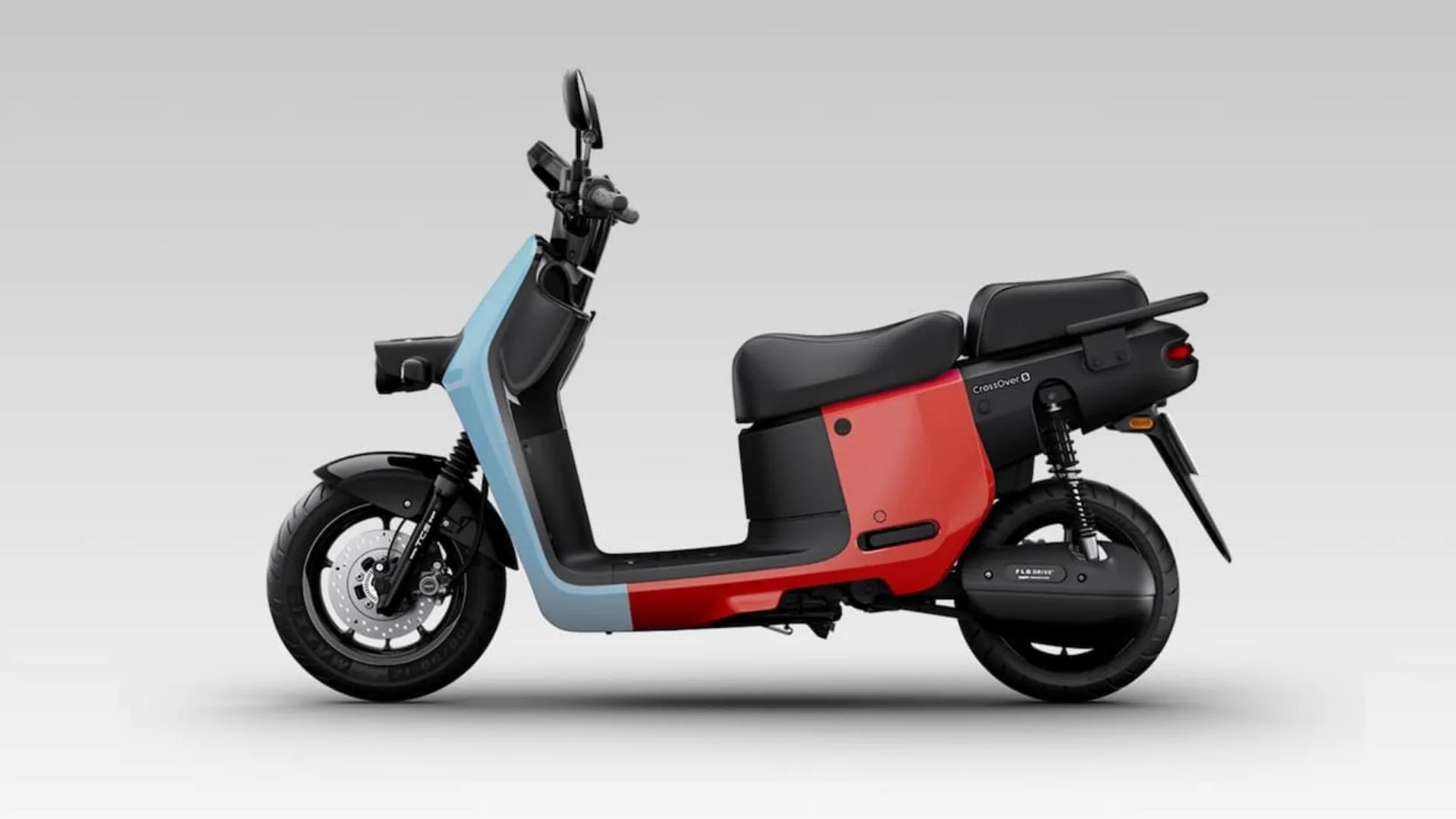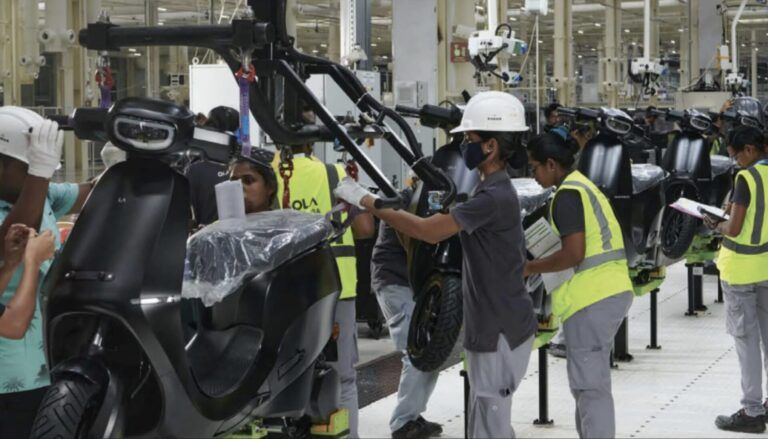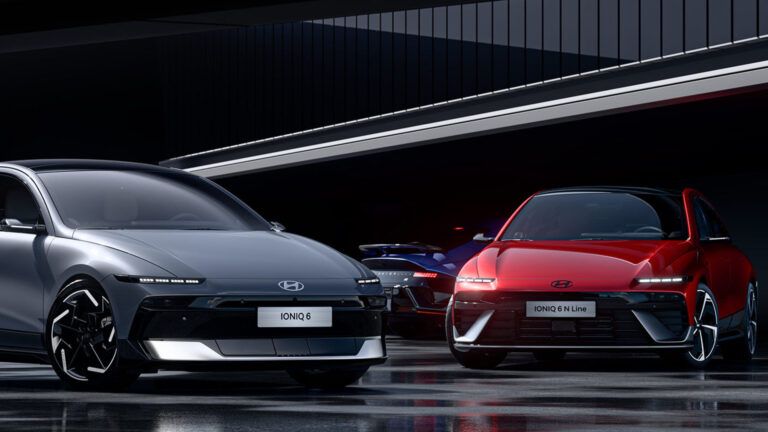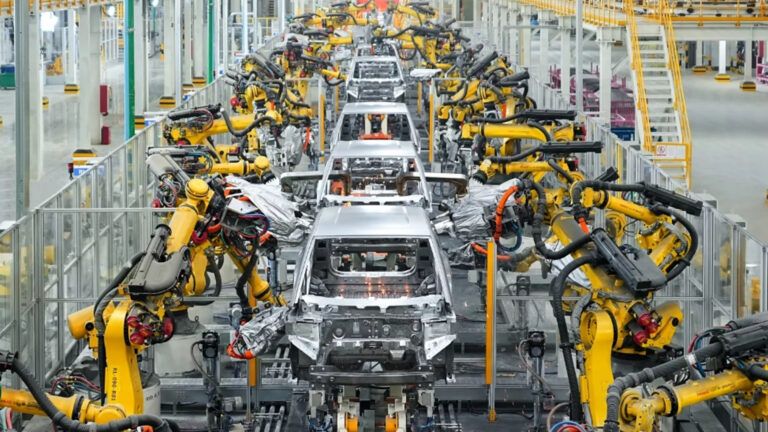The Taiwan-based electric vehicle startup Gogoro came up with its first product in India recently, the Gogoro Crossover electric scooter. This B2B electric scooter is now under development in Maharashtra and is scheduled to hit the market in early 2024. The Crossover prioritizes flexibility for gig workers by including swappable batteries and a focus on luggage space. Gogoro’s partnerships with big delivery companies such as Swiggy and Zomato indicate the company’s ambition to appeal to India’s booming economy.
The Gogoro Crossover is a utility-focused electric scooter with a wheelbase that exceeds 1,400 mm, making it Gogoro’s biggest product. The construction of scooter, which is constructed on a modified steel tubular frame, supports an expanded LED headlamp that serves as a load-bearing element and underlines utility and adaptability. It has a telescopic fork, dual rear shocks, 12-inch wheels, and disc brakes (220 mm front; 180 mm rear) for a stable and adaptable ride.
The Crossover, which weighs 126 kg with batteries, focuses on functionality, with split seats that double as extra carrying room. The detachable pillion seat adds even more storage space. It has two swappable battery packs behind the rider seat, each weighing little more than 10 kg and with a total capacity of roughly 1.6 kWh, enabling a range of about 100 km.
Gogoro intends to increase functionality by including optional front and rear baggage racks, top cases, and panniers. The B2B model for India is expected to have a motor with a peak power output of less than 3 kW and a top speed of 60-65 kmph, in line with the demands of the gig economy.

The upcoming launch of Gogoro’s Crossover electric scooter in India is a smart effort to appeal to the country’s booming gig economy. The scooter targets B2B users, emphasizing cargo space and flexibility for freelance workers. Gogoro’s agreements with big delivery companies such as Swiggy and Zomato, as well as tie-ups with Hindustan Petroleum Corporation Limited (HPCL) for battery cabinets in gasoline stations, highlight the company’s ambitious aspirations to develop a comprehensive battery-swapping network throughout important Indian cities. The company’s strategy of offering swappable batteries via subscription-based services intends to make the Crossover more affordable in terms of cost, possibly changing the landscape of electric scooters for commercial usage in India.








